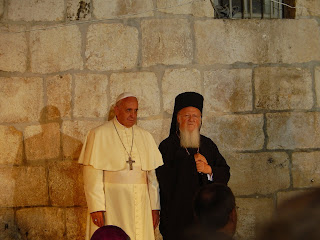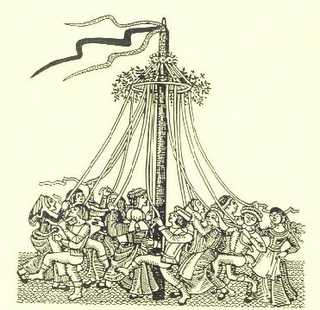blind love is not very helpful.
http://www.thegatewaypundit.com/2015/09/obama-openly-mocks-american-catholics-with-radical-guest-list-for-papal-visit/
it is certainly a bit of a let-down to pick up my blogging after a rather flat, sensational article. argh! but as rant is a rant, well, i suppose it's appropriate!
the pope is on the move, he's on the go. he's a lovely man and ive loved every word and teaching he has shared with the world so far, breaking down bigotry when it has been truly blind to the bigots themselves. probably myself as well. after all, if i was aware, i would not choose to stay a bigot*!
it's a rather memorable moment that he is visiting usa and cuba, as americans are experiencing significant distress over politics of belief systems (though i may dare say that most of the conflicts are not essentially rooted in religions/non-religious, but from social inequality and inflexibility + intolerance), especially heading into next year's election (seriously, what was about that recent US bill that is going to de-fun planned parenthood?! wtheck?) and that cuba is facing one of the biggest possible changes, opening its doors wide and wider to the world.
and to read such article (above), it's quite disheartening and worrying. the writer, quoting the old school vatican official, who is not even named (why?), claims that the state is now mocking the church.
oh come on.
how was it disrespectful? all that was said is that list of guests wont be release to the public at this point, and that it may include people who may really need to talk to the church (and similarly, church would need to communicate with these people) about co-existing in peace.
if a guest list is to only include easy audience, i think the whole point of such visit is lost. the fact that pope will have a chance to meet the people who may have contrary ideas in neutral space is important, for everyone to respect the differences of ideas AND TO WORK TOGETHER.
if a catholic was invited to welcome dalai lama, would that be considered an insult? as we love people, we must accept that other people also may love the same people, despite of what may seem to be irreconcilable differences. i find the article a bit to close to war-mongering...
i think the pope is wise and strong man. i dont think he needs people-slamming by some bigoted writer who may have lost the sight of things in the name of love (therefore to protect, shield, separate the pope from possible conflicts and contraversies, much like people who tries to shield their loved ones from anything but impossible state of continuous happiness). and he certainly would welcome the audience, with courage, i believe.
have a great visit, pope francis! i love your presence in this world very much.
bigot (n.) (Look up bigot at Dictionary.com)
1590s, "sanctimonious person, religious hypocrite," from French bigot (12c.), which is of unknown origin. Earliest French use of the word is as the name of a people apparently in southern Gaul, which led to the now-doubtful, on phonetic grounds, theory that the word comes from Visigothus. The typical use in Old French seems to have been as a derogatory nickname for Normans, the old theory (not universally accepted) being that it springs from their frequent use of the Germanic oath bi God. But OED dismisses in a three-exclamation-mark fury one fanciful version of the "by god" theory as "absurdly incongruous with facts." At the end, not much is left standing except Spanish bigote "mustache," which also has been proposed but not explained, and the chief virtue of which as a source seems to be there is no evidence for or against it.
In support of the "by God" theory, as a surname Bigott, Bygott are attested in Normandy and in England from the 11c., and French name etymology sources (such as Dauzat) explain it as a derogatory name applied by the French to the Normans and representing "by god." The English were known as goddamns 200 years later in Joan of Arc's France, and during World War I Americans serving in France were said to be known as les sommobiches (see also son of a bitch). But the sense development in bigot is difficult to explain. According to Donkin, the modern use first appears in French 16c. This and the earliest English sense, "religious hypocrite," especially a female one, might have been influenced by beguine and the words that cluster around it. Sense extended 1680s to other than religious opinions.
it is certainly a bit of a let-down to pick up my blogging after a rather flat, sensational article. argh! but as rant is a rant, well, i suppose it's appropriate!
the pope is on the move, he's on the go. he's a lovely man and ive loved every word and teaching he has shared with the world so far, breaking down bigotry when it has been truly blind to the bigots themselves. probably myself as well. after all, if i was aware, i would not choose to stay a bigot*!
it's a rather memorable moment that he is visiting usa and cuba, as americans are experiencing significant distress over politics of belief systems (though i may dare say that most of the conflicts are not essentially rooted in religions/non-religious, but from social inequality and inflexibility + intolerance), especially heading into next year's election (seriously, what was about that recent US bill that is going to de-fun planned parenthood?! wtheck?) and that cuba is facing one of the biggest possible changes, opening its doors wide and wider to the world.
and to read such article (above), it's quite disheartening and worrying. the writer, quoting the old school vatican official, who is not even named (why?), claims that the state is now mocking the church.
oh come on.
how was it disrespectful? all that was said is that list of guests wont be release to the public at this point, and that it may include people who may really need to talk to the church (and similarly, church would need to communicate with these people) about co-existing in peace.
if a guest list is to only include easy audience, i think the whole point of such visit is lost. the fact that pope will have a chance to meet the people who may have contrary ideas in neutral space is important, for everyone to respect the differences of ideas AND TO WORK TOGETHER.
if a catholic was invited to welcome dalai lama, would that be considered an insult? as we love people, we must accept that other people also may love the same people, despite of what may seem to be irreconcilable differences. i find the article a bit to close to war-mongering...
i think the pope is wise and strong man. i dont think he needs people-slamming by some bigoted writer who may have lost the sight of things in the name of love (therefore to protect, shield, separate the pope from possible conflicts and contraversies, much like people who tries to shield their loved ones from anything but impossible state of continuous happiness). and he certainly would welcome the audience, with courage, i believe.
have a great visit, pope francis! i love your presence in this world very much.
bigot (n.) (Look up bigot at Dictionary.com)
1590s, "sanctimonious person, religious hypocrite," from French bigot (12c.), which is of unknown origin. Earliest French use of the word is as the name of a people apparently in southern Gaul, which led to the now-doubtful, on phonetic grounds, theory that the word comes from Visigothus. The typical use in Old French seems to have been as a derogatory nickname for Normans, the old theory (not universally accepted) being that it springs from their frequent use of the Germanic oath bi God. But OED dismisses in a three-exclamation-mark fury one fanciful version of the "by god" theory as "absurdly incongruous with facts." At the end, not much is left standing except Spanish bigote "mustache," which also has been proposed but not explained, and the chief virtue of which as a source seems to be there is no evidence for or against it.
In support of the "by God" theory, as a surname Bigott, Bygott are attested in Normandy and in England from the 11c., and French name etymology sources (such as Dauzat) explain it as a derogatory name applied by the French to the Normans and representing "by god." The English were known as goddamns 200 years later in Joan of Arc's France, and during World War I Americans serving in France were said to be known as les sommobiches (see also son of a bitch). But the sense development in bigot is difficult to explain. According to Donkin, the modern use first appears in French 16c. This and the earliest English sense, "religious hypocrite," especially a female one, might have been influenced by beguine and the words that cluster around it. Sense extended 1680s to other than religious opinions.




Comments
Post a Comment